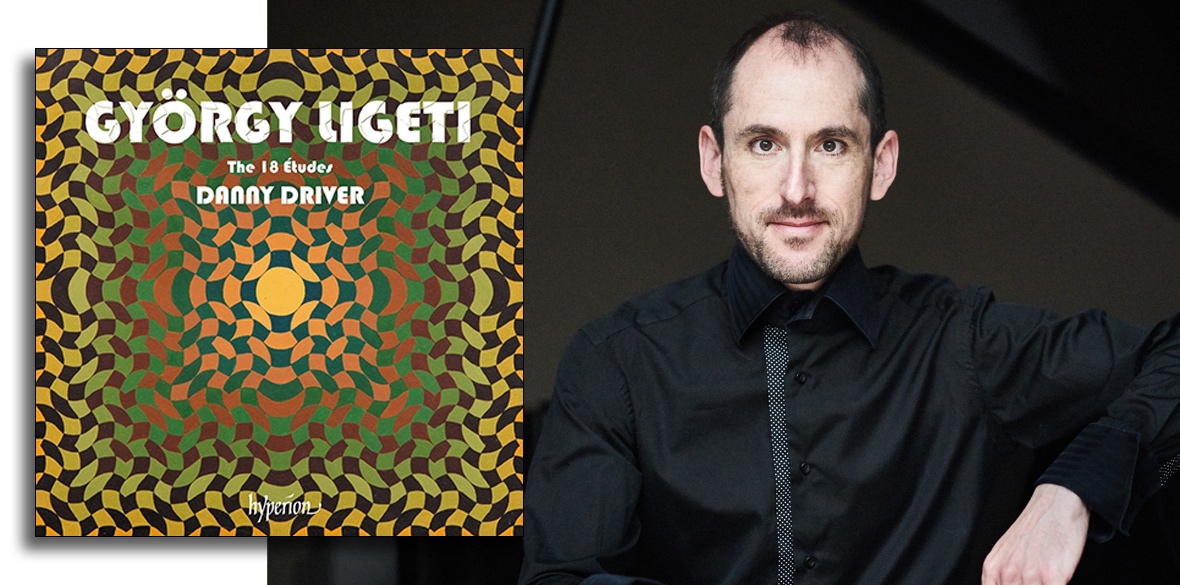This is the last article you can read this month
You can read more article this month
You can read more articles this month
Sorry your limit is up for this month
Reset on:
Please help support the Morning Star by subscribing here
COMPOSED between 1985 and 2001, the late Hungarian-Transylvanian composer Gyorgy Ligeti’s 18 Etudes for solo piano require fast fingers and formidable brain power. It’s music that tests both player and instrument to the limit.
The work consists of 18 pieces arranged into three books, the last incomplete. Influences range from Chopin, Debussy, Rachmaninov and modern jazz to African and Cuban music.
With their exhilarating brilliance and, at times, mesmerising beauty, the etudes capture the imagination intellectually and spiritually and they are well served by Danny Driver, one of this country's leading contemporary pianists, who displays a steely determination throughout.
The album opens with the frantic fast tempo of Desordre, an intense investigation into mathematical chaos, in which visual aspects are as important as the composition — the right hand plays only white keys, the left hand only the black notes.
Tempo and mood change considerably for the next passage, Cordes a vide, with a reflective and slower impressionistic mood inspired by Debussy to the fore. Driver delivers with a delicate and tender touch, with colours and harmonies showing off a glowing and hauntingly optimistic beauty.
The pace quickens again for Touches bloquees, with keys “blocked” to create a stuttering effect, while the passage in which octaves go horribly wrong is described by Ligeti as being like clowns in a circus who are constantly messing up tricks that in fact they can do brilliantly.
Automne a Varsovie, referencing a Romanian funeral lament, ends Book One and captures a wide emotional dynamic range including a sense of optimistic nostalgia.
The hypnotic Galamb Borong opens Book Two and Driver paces L’escalier du diable, the longest of these brief pieces, with incredible dexterity, while Book Three ends with Canon, a slow, winding-down impressionistic work of calm and order, bringing with it a questioning undertone.
Had ill-health not intervened, Ligeti would surely have written even more ambitious work but the 18 Etudes are very much the composer's summit achievement, enhanced on this recording by a sound which is warm, detailed and with a full, rich bass tone. Recommended.
Released on Hyperion.











